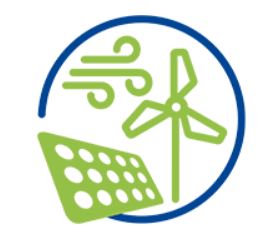Renewable energy has the potential to play a big role in the transition pathways towards a low carbon society in Europe and has many recognised benefits. So, the European Union has aimed to increase the share of renewable energy in the electricity industry to at least 50% by 2030. The Innovation Readiness Level (IRL) studied the readiness of renewable energy technologies along 5 dimensions of technology readiness level and provides recommendations for policymakers.
Renewable energy has the potential to play a big role in the transition pathways towards a low carbon society in Europe. The benefits of renewable energy are numerous and recognised, they diversify the European energy supply sources, reduce dependency on fossil fuels (e.g., oil, gas), delimit environmental impact of conventional energy sources and improve the European energy system security against fuel price volatility. Accordingly, the European Union has aimed to increase the share of renewable energy in the electricity industry to about 50% by 2030 and even higher by 2050.
This roadmap studies the development and deployment of several renewable energy technologies and explores technological innovation and market solutions that allow the development of the renewable energy and finding approaches to fully integrate renewable energy into the energy system efficiently and effectively. The roadmap explores onshore and offshore wind power, PV solar power and, tidal and wave power. The roadmap results shed light on a set of technological innovation and also market solutions (in terms of innovative regulations, business models, integration methods, customers & society requirements and value chain settings) that enable shifting the market gaps to opportunities and barriers to effective actions. The roadmap makes several recommendations for policymakers and technology developers on how to improve the position and share of renewable technologies in the European electricity market.
The roadmap results are complemented with the assessment of Innovation Readiness Level (IRL) of the studied renewable energy technologies. The IRL assessment studies innovation readiness of a technology along 5 dimensions of technology readiness level, Intellectual property (IP) readiness level, market readiness level, consumer readiness level and society readiness level.
The findings of the IRL assessments shed light on factors and processes that are prerequisites for a successful technology development and access to the EU electricity market. The reports highlight points in the innovation processes of the studied technologies that can effectively improve their competitiveness in accessing the European electricity market. The results, therefore, provide suggestions for policymakers, investors and industries about the strengths and drawbacks of the innovation processes of the studied renewable technologies.
After the acceptance of the reports, the full versions can be found here.

This article is an output of the EU-funded REEEM project
REEEM
 REEEM is a H2020 Research and Innovation project funded under the Low-Carbon Energy call in 2015. It aims to gain a comprehensive understanding of the system-wide implications of transition pathways towards a low-carbon EU energy society.
The project specifically assesses the potential implications of EU transition pathways and the role of innovation on the EU society, environment and economy. This is achieved through:
REEEM is a H2020 Research and Innovation project funded under the Low-Carbon Energy call in 2015. It aims to gain a comprehensive understanding of the system-wide implications of transition pathways towards a low-carbon EU energy society.
The project specifically assesses the potential implications of EU transition pathways and the role of innovation on the EU society, environment and economy. This is achieved through:
- The development of an integrated assessment framework, based on a large set of best-in-class models;
- The production of open source and widely documented tools to make the methodologies transparent and disseminate the key messages.
- The drafting recommendations for policy-makers and businesses on how to drive this transition towards a low-carbon EU energy system.
- Project title: “Role of technologies in an energy efficient economy – model based analysis policy measures and transformation pathways to a sustainable energy system” (REEEM)
- Funding scheme: RIA – Research and innovation action (EU H2020, grant agreement no. 691739)
- Duration: 3.5 years (1 February2016 – 31 July 2019)
- Project coordinator: KTH Royal Institute of Technology, Stockholm, Sweden
- Project website: www.reeem.org

